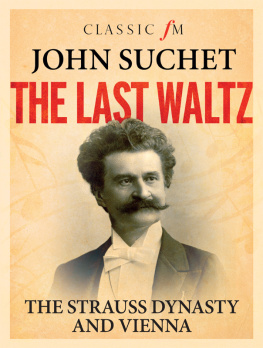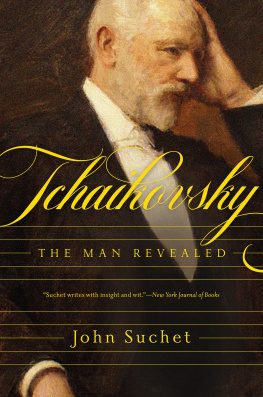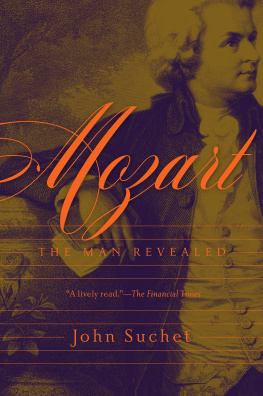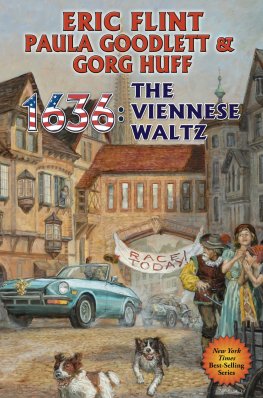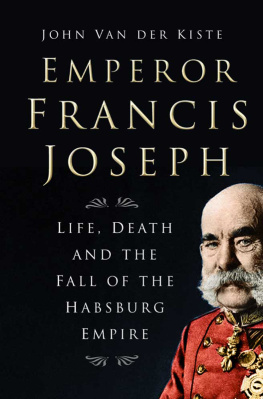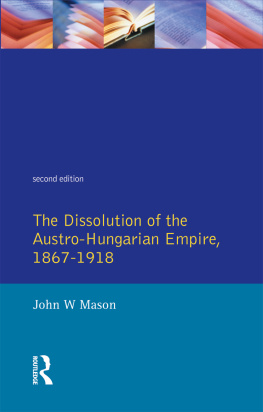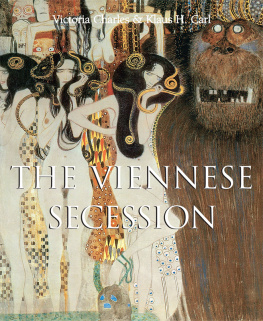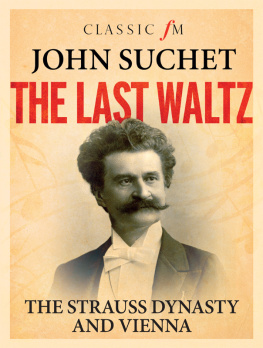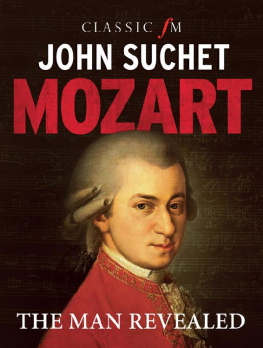This handsomely presented volume positively screams to be taken down from the shelf and explored. In its pages, John Suchet succeeds in giving an overview of the Viennese Strauss dynasty of musicians, setting it in the context of the often turbulent and tragic lives of the ruling Habsburg dynasty. Importantly, and unlike almost every other contemporary writer in this field, Suchet embraces the fact that the Strauss familys music-making did not end with the death of the Waltz King in 1899, but continued well into the swinging sixties of the 20th century.
I greatly enjoyed spending time with John Suchets fascinating book about Johann Strauss, and I hope you will enjoy it as much as I did.
John beautifully balances the family Strauss saga with the fall of the Habsburg Empire. This copiously illustrated book is terrific!
Very readable ... elegantly prepared with plenty of quality illustrations ... makes a fascinating read about one of the greatest musical dynasties that ever lived. John Suchet puts their personal lives into the context of the politics of the day without missing out on the musical history. A book to be thoroughly recommended.
Riveting reading ... I found it difficult to put down. Stuffed full of facts, both historical and musical, this is in no way a dry academic tome because John Suchet, as always, spins his enthusiastic way through the drama as if guiding us personally in the footsteps of the protagonists and their times. I can highly recommend this absorbing and beautifully presented book.
Engaging ... the narrative style is very beguiling and draws the reader in very quickly. I could not put this down once I had started it... This book, as well as being immensely readable, entertaining and beautifully written, is also beautifully produced. The paper is of a high quality, the kind that you want to stroke, the illustrations are superb and the layout of the whole book is a joy. I loved it.
Incredibly informative and entertaining ... made me realise how little I knew about this musical dynasty. [Suchets] talent for giving the reader facts without any heavy academic approach means this is a very approachable route into becoming your own Strauss authority! The snippets and anecdotes have been carefully collected and put together in such a way that dipping in and out of the book is easy highly recommended for anyone wondering what is behind the Blue Danube!
Sandra Parr, Artistic Planning Director (Orchestra and Ensembles), Royal Liverpool Philharmonic Orchestra
Contents


Chapter One
City of Dreams
Chapter Two
Caf Culture
Chapter Three
Conquering Paris
Chapter Four
By Royal Appointment
Chapter Five
A Family Conspiracy
Chapter Six
Good Morning Strauss Son!
Chapter Seven
Radetzky Marches Out of Step
Chapter Eight
A New Waltz King
Chapter Nine
Pepi Joins the Family Firm
Chapter Ten
In Russia and in Love
Chapter Eleven
Tying the Knot
Chapter Twelve
The Strauss Family in Mourning
Chapter Thirteen
Strauss Turns His Hand to Operetta
Chapter Fourteen
Johann Strauss Tastes Failure
Chapter Fifteen
To the Altar Again
Chapter Sixteen
Tragedy in the Imperial Royal Family
Chapter Seventeen
The Emperor Waltz
Chapter Eighteen
An Assassins Knife Breaks the Emperors Heart
Chapter Nineteen
A Final Fledermaus and Johann Strauss Bids Farewell
Chapter Twenty
Eduards Flames of Revenge
Chapter Twenty-one
A New Century and a New Vienna
Chapter Twenty-two
The Nazis Rewrite History
Chapter Twenty-three
Admired by the Greats

Introduction
The name of Johann Strauss, and the sound of his music, are synonymous with Vienna. They are Vienna. Johann Strauss the Younger, the Waltz King, may have been dead for over a century, but there is not a night of the week when his music cannot be heard somewhere in Vienna. And wherever in the world it is heard, it is the image of the city of Vienna and of its river the Danube that are instantly conjured up.
So beautiful, melodious and instantly memorable are the pieces he wrote, that you could easily believe that he, his father and brothers prolific and successful composers all lived in perfect harmony, both musically and otherwise, and that the city of their birth was as peaceful and content as their music.
The truth was very different. The Strauss family was riven with tension, rivalry and jealousy. The founder of the dynasty, Johann Strauss senior, deserted his family. His three sons worked literally to the point of exhaustion one killing himself through overwork, another constantly ill with the strain of composing, the third ultimately burning thousands of family manuscripts in a fit of jealousy.
And the Vienna in which they lived? A revolution on the streets brought to the throne an emperor who would lose his only son to suicide and his wife to murder. In the second half of the nineteenth century the once great Habsburg Empire would dwindle in power and influence, dwarfed by the might and militarism of Prussia.
Through it all the Viennese would drink champagne and waltz to the music of the Strauss dynasty, as they hurtled towards the First World War and oblivion.
This book tells the extraordinary story of the most prolific and popular family of composers in musical history, and of the turbulent city in which they lived.
Note on Sources:
The principal source of quoted historical material, as well as many other facts pertaining to the lives of the Strauss family, is Peter Kemps excellent book The Strauss Family: Portrait of a Musical Dynasty. First published in 1985 and still the most comprehensive and authoritative single-volume work on the Strauss family, this book has been an invaluable help in the researching and writing of The Last Waltz. I cannot recommend it highly enough as the starting point for anyone wishing to learn more about this extraordinary family.
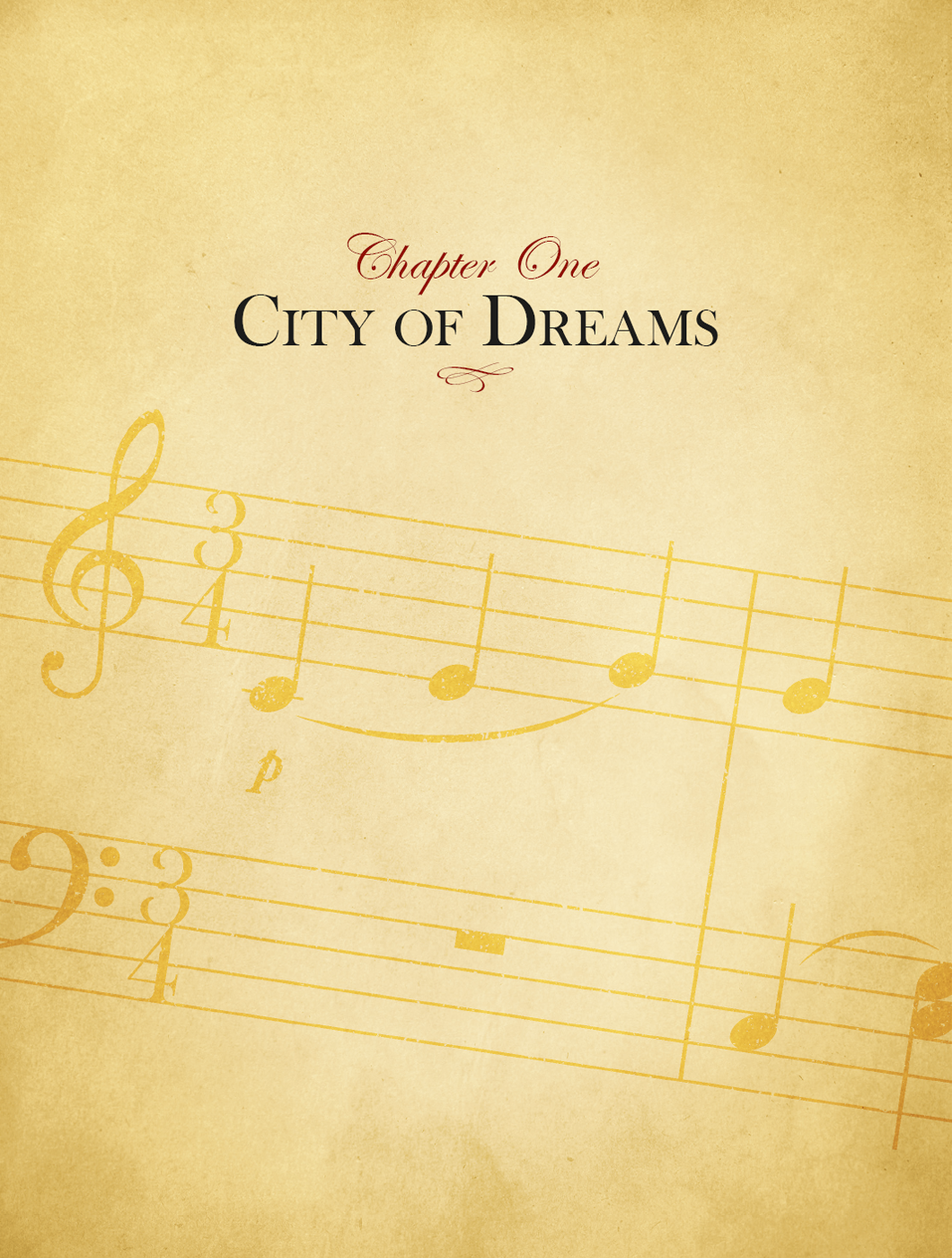
T here is a saying in Vienna: When one eye cries, the other one laughs. Another has it that Things are desperate but not serious.
Vienna is a city of contradictions, as the Viennese themselves know well, and you need look no further than its music to prove it.
The single most famous piece of music to emerge from Vienna, a piece that encapsulates the spirit of the city, that is heard without fail at every Vienna New Years Day concert, that from the opening of shimmering violins says This is Vienna, is named for its river.
I can think of no other great capital city that has a universally known and loved piece of music named for its river. Not the Seine in Paris, the Thames in London, the Tiber in Rome, the Vltava in Prague, the Spree in Berlin, the Vistula in Warsaw, the Moskva in Moscow.

